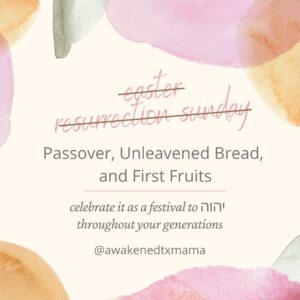
“Shabbat Shalom”
I didn’t quite understand the depth of what “Shalom” meant. Why not simply say peace? In many ways, it feels like I’m learning a new, beautiful language.
While our modern definition of peace is grasping for a break from life’s turmoil, it seems biblical peace addresses our hearts — it’s more than a lack of conflict.

Rabbi Robert I. Kahn of Houston, Texas, differentiates “Roman” peace verses “Hebrew” shalom:
One can dictate a peace; shalom is a mutual agreement.
Peace is a temporary pact; shalom is a permanent agreement.
One can make a peace treaty; shalom is the condition of peace.
Peace can be negative, the absence of commotion. Shalom is positive, the presence of serenity.
Peace can be partial; shalom is whole.
Peace can be piecemeal; shalom is complete.
In John 14:27, Yahusha (Jesus) was nearing the end of His earthly ministry and prepared the disciples for what was ahead, knowing that it would not be easy. As He comforted and prepared them, He said, “Peace I leave with you – My peace I give to you. I do not give to you as the world gives. Do not let your heart be troubled, neither let it be afraid.”
Yoḥanan (John) 14:27
And the Master of peace Himself give you peace always in every way. The Master be with you all. Tas`loniqim Bĕt (2 Thessalonians) 3:16

Shalom is more than simply peace; it is a COMPLETE peace. According to Strong’s Concordance 7965 Shalom not only means completeness, but wholeness, health, peace, welfare, safety soundness, tranquility, prosperity, perfectness, fullness, rest, harmony, the absence of agitation or discord. Hebrew: שָׁלוֹם
Proverbs 18:21 tells us there is life or death in the power of the tongue. Therefore, whenever you greet someone, coming and going, the word “shalom” you are speaking into someone’s life all the wonderful things that shalom means!
The one steadfast of mind You guard in perfect peace, for he trusts in You. “Trust in יהוה forever, for in Yah, יהוה, is a rock of ages.” Yeshayah (Isaiah) 26:3-4
Shabbat Shalom, friends!















